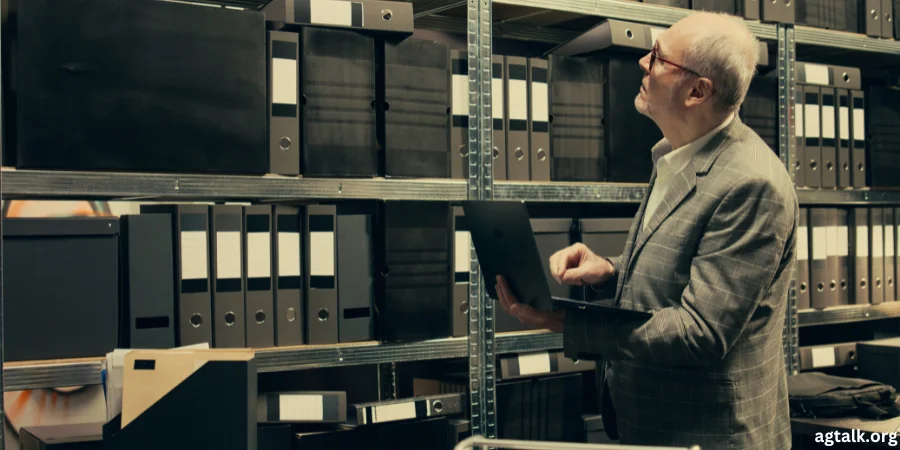Archivebate: The Ultimate Guide to Digital Preservation
The preservation of digital information has become essential in a society where data is king. Here’s where Archivebate comes into play. However, what is Archivebate exactly, and why is it important to you? Let’s explore the exciting world of digital preservation and learn how Archivebate can be used to protect our digital legacy.
Understanding Archivebate
Definition and Concept
Archivebate refers to the systematic process of preserving digital data over the long term. It involves collecting, storing, and managing digital content to ensure its accessibility and integrity for future generations.
Historical Background
The concept of digital preservation is not new. It dates back to the early days of computing when organizations realized the need to keep digital records safe. Over time, as technology evolved, so did the methods and tools for preserving digital data, leading to the sophisticated systems we have today.
The Need for Digital Archives
Preserving History and Culture
Digital archives play a vital role in preserving our collective history and culture. They store everything from ancient manuscripts to modern-day digital art, ensuring that future generations can access and learn from these treasures.
Legal and Compliance Reasons
Many industries are bound by legal and regulatory requirements to keep records for extended periods. Archivebate ensures compliance with these mandates, protecting organizations from potential legal repercussions.
How Archivebate Works
Data Collection Methods
Archivebate involves various methods for collecting data, including scanning physical documents, capturing web content, and converting analog media into digital formats. This process ensures a comprehensive archive of all relevant information.
Storage Solutions
The data collected is then stored in secure digital environments. These can range from local servers to cloud-based storage solutions, each offering different levels of accessibility and protection.
Benefits of Using Archivebate
- Accessibility and Convenience: One of the main advantages of Archivebate is the ease of access it provides. Digital archives can be accessed from anywhere, at any time, making it convenient for users to retrieve the information they need.
- Preservation of Information: Digital archiving with Archivebate means your data is safe from physical degradation. No more worrying about paper turning yellow or ink fading.
- Enhanced Security: Digital archives offer robust security features, protecting data from unauthorized access, theft, and damage. Encryption, user authentication, and regular security audits are some of the measures in place to ensure data safety.
Archivebate for Personal Use
Keeping Family Records
On a personal level, Archivebate can be used to preserve family records such as photographs, home videos, and important documents. This ensures that precious memories and critical information are not lost over time.
Managing Personal Documents
Personal documents like birth certificates, passports, and educational certificates can be securely stored using Archivebate, providing easy access and preventing physical damage or loss.
Archivebate in Business
Document Management
For businesses, Archivebate is an essential tool for managing documents. It helps in organizing, storing, and retrieving documents efficiently, leading to improved productivity and reduced operational costs.
Ensuring Regulatory Compliance
Many industries require businesses to maintain records for compliance purposes. Archivebate ensures that these records are preserved and easily accessible, aiding in audits and regulatory checks.
Technological Aspects of Archivebate
Software and Tools
Several software solutions and tools are available to facilitate Archivebate. These range from simple document management systems to comprehensive digital preservation platforms that offer advanced features like automated archiving and metadata management.
Cloud Storage vs. Local Storage
Deciding between cloud storage and local storage is crucial. Cloud storage offers scalability and remote access, while local storage provides more control and potentially higher security. Often, a hybrid approach is used to leverage the benefits of both.
Challenges in Digital Preservation
- Data Corruption: One of the main challenges in digital preservation is data corruption. Over time, digital files can become corrupted, leading to data loss. Regular integrity checks and backups are essential to mitigate this risk.
- Technological Obsolescence: As technology evolves, older digital formats and storage media can become obsolete. Ensuring that data remains accessible involves migrating it to current formats and media, a process known as data refreshing.
Future of Digital Preservation
Emerging Technologies
The future of digital preservation looks promising with emerging technologies like blockchain and quantum computing. These technologies offer new ways to ensure data integrity and security.
AI and Machine Learning
Artificial Intelligence (AI) and Machine Learning (ML) are also playing a growing role in digital preservation. They can automate many aspects of the archiving process, making it more efficient and reliable.
Case Studies
Successful Implementation in Organizations
Many organizations have successfully implemented Archivebate systems. For instance, libraries and museums use digital preservation to protect and share their collections with a broader audience.
Personal Success Stories
Individuals have also benefitted from Archivebate. Consider Jane, who digitized her family’s century-old photo albums. Now, she can easily share these precious memories with relatives across the globe, ensuring her family’s history is preserved and accessible to future generations.
FAQs About Archivebate
1. What is the main purpose of Archivebate?
The primary goal of Archivebate is to preserve digital data for the long term, ensuring that it remains accessible, secure, and intact for future use.
2. Can I use Archivebate for personal data?
Absolutely! Archivebate is not just for businesses and organizations. Individuals can use it to preserve personal documents, family photos, and other important records.
3. What types of data can be archived with Archivebate?
Archivebate can handle various types of data, including textual documents, images, videos, and audio files. It supports a wide range of formats to ensure comprehensive preservation.
4. How secure is Archivebate?
Archivebate employs robust security measures such as encryption, user authentication, and regular security audits to protect data from unauthorized access and potential threats.
5. What are the challenges of digital preservation?
The main challenges include data corruption, technological obsolescence, and managing the vast amount of data generated daily. Regular maintenance and updates are essential to address these issues.
Conclusion
Archivebate represents a significant leap forward in the field of digital archiving. Its user-friendly interface, robust security, and advanced features make it an invaluable tool for individuals, researchers, and businesses alike. As technology continues to advance, Archivebate is well-positioned to remain at the forefront of digital archiving solutions.
Share this content:














Post Comment